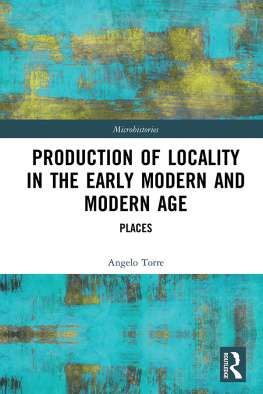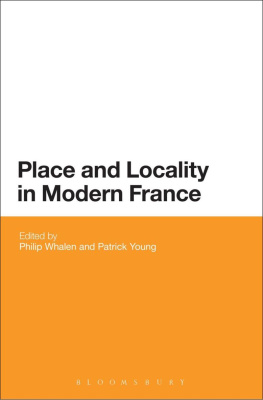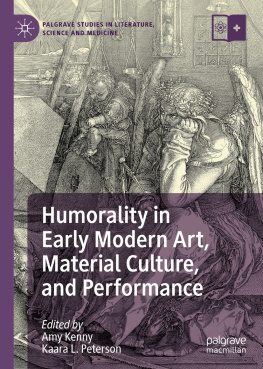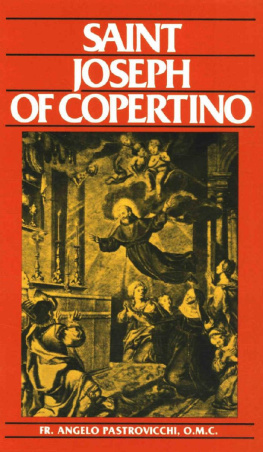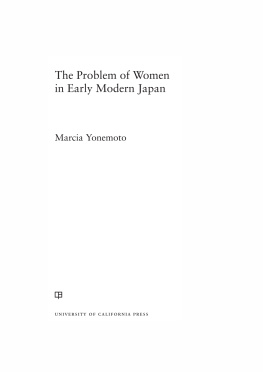Production of Locality in the Early Modern and Modern Age
This book is a microhistory study of village settlements in early modern Northwest Italy that aims to expand the notion of place to include the process of producing a locality; that is, the production of native local subjects through practices, rituals and other forms of collective action.
Undertaking a micro-analytical approach, the book examines the customs and practices associated with typically fragmented and polycentric Italian village settlements to analyze the territorial tensions between various segments of a village and its neighbors. The microspatial analysis reveals how these tensions are the expressions of conflictual relationships between lay, ecclesiastical and charitable bodies culminating in a culture of fragmentation that impacts local economic and political practices. The book also traces how the production of locality survived throughout the nineteenth and twentieth centuries and is still observed today. In this light, the study of practices and policies of locality over time that this book undertakes is an essential tool to better understand the nature and role of these social bonds in todays society.
Archival records and the methods for approaching this source material are included within the text, making it an accessible and invaluable book for students and teachers of social and cultural history.
Angelo Torre is Professor of Early Modern History at the University of Eastern Piedmont, Italy. He studied early modern micropolitics through religious and jurisdictional sources. He wrote Il consumo di devozioni (1995) and edited Per vie di terra (2007) and is currently the editor of the journal Quaderni storici.
Microhistories
Series editors: Sigurur Gylfi Magnsson and Istvn M. Szijrt
The Microhistories series is open to books employing different microhistorical approaches, including global microhistories aimed at grasping world-wide connections in local research, social history trying to find determining historical structures through a micro-analysis, and cultural history in the form of microhistories that relate directly to large or small scale historical contexts. They are interesting stories, that bring the everyday life and culture of common people of the past close to the readers, without the aspiration of finding answers to general big questions or relating them to the grand narratives of history. The series is open to publishing both theoretical and empirical works, but with a focus on empirical monographs which can communicate stories from the past and capture the imagination of our readers.
Published
The Revolt of Snowballs: A Microhistory, by Claire Judde De Larivire
A Tale of a Fool? A Microhistorical Study of an 18th-Century Peasant Woman, by Gun Hallgrmsdttir
Roman Tales: A Readers Guide to the Art of Microhistory, by Thomas V. Cohen
Puritan Family and Community in the English Atlantic World: Much Afflicted with Conscience, by Margaret Manchester
Five Parishes in late Medieval and Tudor London: Communities and Reforms, by Gary G. Gibbs
The Great Nightmen Conspiracy: A Tale of the 18th Centurys Dishonourable Underworld, by Tyge Krogh
Production of Locality in the Early Modern and Modern Age: Places, by Angelo Torre
Forthcoming
Who Killed Panayot? Reforming Ottoman Legal Culture in the 19th century, by Omri Paz
First published 2020
by Routledge
2 Park Square, Milton Park, Abingdon, Oxon OX14 4RN
and by Routledge
52 Vanderbilt Avenue, New York, NY 10017
Routledge is an imprint of the Taylor & Francis Group, an informa business
2020 Angelo Torre
The right of Angelo Torre to be identified as author of this work has been asserted by him in accordance with sections 77 and 78 of the Copyright, Designs and Patents Act 1988.
All rights reserved. No part of this book may be reprinted or reproduced or utilised in any form or by any electronic, mechanical, or other means, now known or hereafter invented, including photocopying and recording, or in any information storage or retrieval system, without permission in writing from the publishers.
Trademark notice: Product or corporate names may be trademarks or registered trademarks, and are used only for identification and explanation without intent to infringe.
British Library Cataloguing-in-Publication Data
A catalogue record for this book is available from the British Library
Library of Congress Cataloging-in-Publication Data
Names: Torre, Angelo, author.
Title: Production of locality in the early modern and modern age : places / Angelo Torre.
Description: Abingdon, Oxon ; New York, NY : Routledge, 2019. | Includes bibliographical references and index.
Identifiers: LCCN 2019037271 | ISBN 9781138313705 (hardback) | ISBN 9780429457463 (ebook)
Subjects: LCSH: Villages--Italy, Northern--Social life and customs. | Villages--Italy, Northern--Social conditions. | Villages--Italy, Northern--History. | Community organization--Italy, Northern--History. | Jurisdiction--Italy, Northern--History.
Classification: LCC HN488.N67 T67 2019 | DDC 307.720945/1--dc23
LC record available at https://lccn.loc.gov/2019037271
ISBN: 978-1-138-31370-5 (hbk)
ISBN: 978-0-429-45746-3 (ebk)
This book is dedicated to Costi and Viola.
This work is the result of such a rich confluence of people and places that it is difficult to fully and adequately acknowledge them all. In retrospect, it is clear that writing it would not have been possible but for the approach to sources and problems of analysis on the local scale devised by the Permanent Seminar on Local History at the University of Genoa founded by Edoardo Grendi. For this reason, the first people whom I wish to thank are its tireless members and coordinators, especially Diego Moreno, Osvaldo Raggio, Massimo Quaini, Vittorio Tigrino, Luca Giana, and Roberta Cevasco. I am also extremely grateful to the friends of the Centro G. Casalis with whom I have shared the past two decades compiling the Schedario storico-territoriale dei Comuni piemontesi. It is thanks to their unstinting commitment and support that we now have access to a trove of fascinating materials far too long neglected in the field of history and which form the foundation of this work.
The intellectual journey that led to this book began with my 2000 visit to Cornell University. There I was privileged to give the Einaudi Lecture, which was in no small measure enriched by remarkable exchanges with Aida Fosic, Steven Kaplan, Susan and Sid Tarrow, to whom I owe my heartfelt gratitude. Warmest thanks also go to the seminar participants at the cole des Hautes tudes en Sciences Sociales for their continuing input. My particular thanks go to Alain Boureau, Alain Cantillon, Robert Descimon, Maurizio Gribaudi, Christian Jouhaud, Jacques Revel, Dinah Ribard, and Laurent Thvenot.
The final form of the text owes much to critical observations made by Carlo Olmo, Vittorio Tigrino, and Luca Giana. I am particularly indebted to Simona Cerutti for providing helpful feedback and fresh insights and for accompanying me in every step of my journey. Sandro Lombardini has been an unfailing source of intellectual stimulation and camaraderie, whose presence I hope reverberates on every page. The ongoing dialogue I have had with Carlo Bertelli over the years is reflected in the maps he produced for this volume, which have sparked many fruitful discussions between us. I am grateful to Laura McLean, whose intelligence and perceptiveness enabled me to significantly improve the text during the course of the translation.

